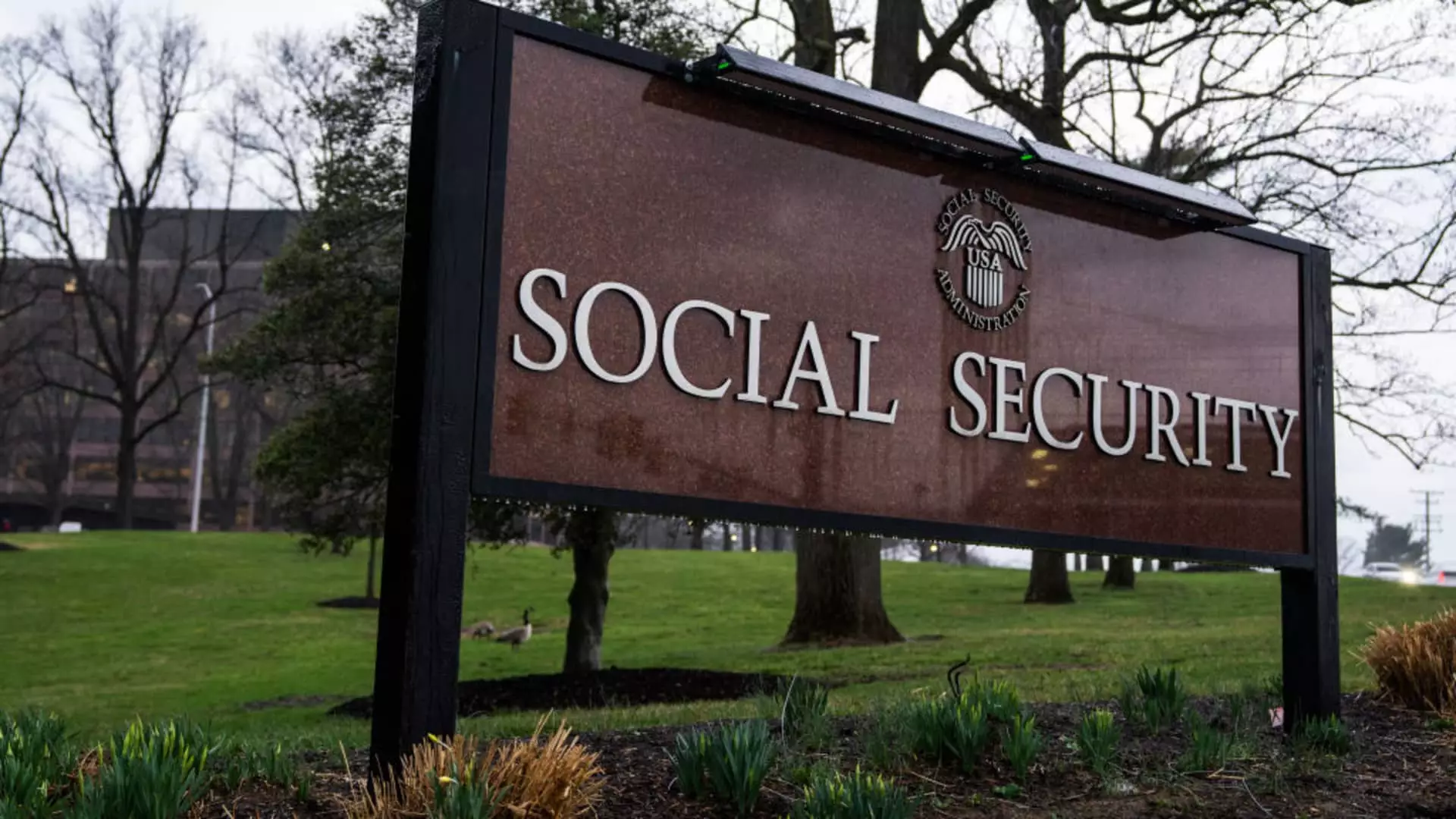A federal judge’s recent decision to block the Trump administration’s Department of Government Efficiency (DOGE) from accessing personal information at the Social Security Administration (SSA) has raised significant concerns. This ruling, which comes on the heels of the contentious political climate, reveals a deepening crisis within the SSA that threatens the very livelihoods of millions who rely on its services. The judge’s order underscores the precarious balance between administrative efficiency and the protection of citizens’ private information. It serves as a reminder that governance often flirts with overreach, especially when power dynamics tip in favor of questionable agencies like DOGE.
The straightforward fact here is that we are witnessing the intersection of governmental oversight and personal privacy, a fitting backdrop for a presidency that has often disregarded the boundaries of institutional authority. Judge Ellen Lipton Hollander’s order indicates that the attempt to streamline government processes through unregulated access to sensitive data can create more chaos than efficiency. With the SSA tasked with disbursing vital benefits to retirees and disabled individuals, the implications of this ruling are enormous, yet largely overlooked by many.
Impacts on SSA Operations and Public Confidence
The acting commissioner of the SSA, Lee Dudek, expressed immediate concern post-ruling, suggesting that it could severely hinder the functioning of the agency. His assertion that the order’s breadth might encompass all SSA employees, including those on the anti-fraud team, highlights a critical point: when an agency designed to serve the public becomes mired in political conflict and uncertainty, its effectiveness is deeply compromised. Historical reliability matters; for nearly 90 years, the SSA has consistently delivered benefits to its constituents. Now, merely 60 days into an administration marked by controversy, the agency faces perilous challenges that jeopardize its operational integrity.
Advocacy groups have rightly voiced their alarm. It’s not just about bureaucratic efficiency; it’s about real people whose lives depend on these benefits. In a world where discussions of governance often overlook the human element, this situation serves as a sharp reminder. It’s deeply disturbing to consider that chaos within an agency could result in disruptions to those already vulnerable financially and emotionally, which is inherently unjust.
The Chaos of Leadership at SSA
Dudek, criticized for his tumultuous leadership, has found himself at the center of this controversy, and rightly so. Reports suggest that his tenure has been riddled with mismanagement and questionable decisions that have adversely impacted the standing of the SSA. Leaders are meant to inspire confidence in their institutions, yet Dudek’s apology for prior mistakes only highlights a culture of panic rather than stability.
Even more alarming is the involvement of DOGE—an entity led by Elon Musk, a figure whose vision of efficiency might be fundamentally misaligned with the compassionate governance necessary for a service-oriented organization like the SSA. This scenario of a tech titan meddling in the gears of social welfare provokes a sense of unease. Is the transparency we seek in governance being compromised by the overlapping interests of individuals more concerned with their vision than with public welfare?
Political Responses and Implications
The aftermath of DUDEK’s missteps has sparked a fierce bipartisan battle in Congress, exemplified by the war of words between Representatives Neal and Smith. Neal’s characterization of the situation as a “five-alarm fire” speaks to the gravity of the matter, while Smith’s rebuttal downplays legitimate concerns in favor of political point-scoring. Such interactions illustrate a larger issue within the legislative framework: the polarization that prevents meaningful discourse and resolution.
The implications of this strife extend beyond mere political theater. If enacted changes at the SSA are indeed punitive toward the most vulnerable, they risk being labeled as backdoor cuts. The ongoing push-pull between partisan agendas and the protection of public services like Social Security illustrates a fractured social contract between government and citizenry—one that must be vigilantly protected.
A Call for Responsible Governance
The situation at the SSA is emblematic of larger systemic issues within our government, where bureaucracy often collides with personal liberties and rights. This is a pivotal moment that demands critical reflection on how much power should be wielded by any entity claiming efficiency in government operations.
Citizens deserve governance that respects privacy and autonomy and that prioritizes the well-being of the most vulnerable in society. As we grapple with the weeds of bureaucracy, we must remain vigilant against narratives that seek to undermine the very values that uphold our democratic ideals. It is essential to ensure that no individual or entity is allowed to operate without accountability, especially when so many lives hang in the balance.

Leave a Reply